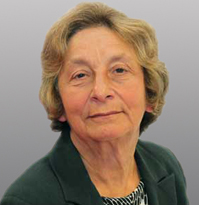Mid-July saw the first meeting between Security Industry Authority (SIA) and Conservative Government minister that will decide when – or if – private security gets business licensing.
SIA chairman Elizabeth France spoke at the ST15 Newcastle event, before that first meeting between her and new SIA chief executive Alan Clamp and the new Home Office minister of state who has charge of the SIA, Mike Penning. She set how the SIA to regulate businesses, besides badged individuals, needs a change to the law through Parliament. She described the 2001 Act that set up the SIA as ‘pretty old’: “We would love an opportunity now for some fresh primary legislation.” On the regulation of private investigators, that Home Secretary Theresa May announced two years ago, Liz France spoke of it in terms of ‘maybe’.
Minimum standards
She spoke in terms of an industry ‘increasingly taking responsibility for raising its own standards, but with a regulator there to make sure that everybody understands there is a minimum you can’t go below’. Later she spoke of a minority in the industry who still provide ‘a shoddy service’. The SIA also has a role in reducing crime, including serious and organised criminals running business empires, which include ‘a small but significant number of security companies’, using the sector to launder money and to ‘facilitate the entry of people who shouldn’t be in this country or offer jobs which form part of what the Home Secretary calls the modern slavery agenda’. Mrs France said that on a recent official visit to Northern Ireland she heard of ‘appalling circumstances of people brought to this country in a horrifying way. Lives controlled by serious criminals, used in various industries, including guarding.” The security industry needs to assist the regulator to make sure that cannot continue, she added. On licence fees that pay for the SIA she said the authority was seeking to drive down the cost, by trying to be more efficient in delivering its services. Among other points:
– the number of SIA-approved contractors stands at 795, mainly in guarding (728)
– the UK has some 370,000 valid SIA licences; and
– compliance is high, at 98 per cent. Like the newly-retired chief exec Bill Butler she pointed to the turnover of people with licences not staying in the industry, which she said has huge implications for standards, and loss of staff experience.
She mentioned the BBC London documentary on qualifications given after little or no training; the SIA is looking with the qualifications watchdog Ofqual into how to be sure that training is of quality.
Autumn review
To meet general Government policy of delivering services ‘digital by default’, all those badged by the authority will need an online account; that is, an email address. Without a law change, the SIA can offer ‘trusted businesses’ to act on behalf of badged staff, if they consent. The SIA in the autumn is going through its regular triennial review. While Mrs France noted that the new Conservative Government was de-regulatory, she opened her talk with a warning against self-regulation: “My experience of self-regulation is that it’s all right for the guys already behaving themselves, but for the guys not behaving there’s little incentive to join a self-regulation regime.” She summed up by saying that the security industry was at an important stage; given pressure on police resources, the industry was fulfilling a range of responsibilities and duties, as a profession increasing in confidence; and regulated, so that users of services could have confidence it would be delivered to a proper standard, by staff with proper training.
Research into violence, diversity
Elizabeth France went through recent research by the SIA into violence faced by security staff. Some 88 per cent of those responding had experienced verbal abuse; 70pc had been physical assaulted, not involving a weapon; 45pc had been assaulted involving a weapon; 48pc had been assaulted requiring first aid; and 34pc had been hospitalised because of an assault. “These figures are horrifying,” she said. “And we need to look very carefully at the night-time economy, which is where the biggest areas of risk are; but they aren’t the only places.” Other places where security officers get verbal and physical assaults are in retail; job centres; and hospitals, particularly accident and emergency departments at weekends and nights; and cash in transit. The SIA is looking at its training in reducing violence. A separate piece of research on diversity found a gender balance in the sector of 91 per cent male to 9pc female; which compares unfavourably with other industries, the police and the armed forces, ‘even engineering’.
Why not women?
Mrs France said: “I wouldn’t have expected it to be 50 per cent, but why aren’t more CCTV operators women?” She asked what was it about the culture of the UK security industry that fewer women are in it, compared with other countries such as Australia. She made the point that those women who do join the industry, love it: ”We need more role models.” On ethnicity, the research found no lack of ethnic minorities in the sector at entry level, but not so as careers progressed; which raised the question of churn in the industry. The more that staff dealing with the public reflect the public, the more effective the service, she added.









